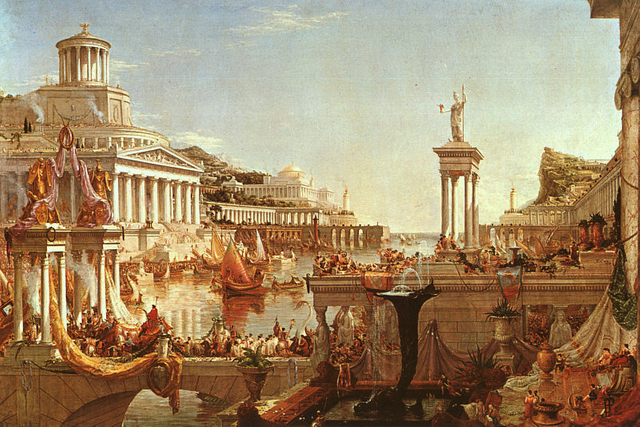
Western Europe never particularly hated pagan knowledge, and in fact jealously guarded and copied important works as Rome declined, but the more I read about how confined medieval astronomers and polymaths were to the Aristotlean and Ptolemaic understanding of the world the more I think it might’ve been better if the church had done at least some of the crazy anti-pagan-learning stuff historical myths attribute to it.
People say things like “the loss of the ten gazillion scrolls at Alexandria set humanity back a thousand years,” but it seems way more realistic to say “the Christian and Muslim educated class’ insistence on always agreeing with the ancient pagan models kept humanity back a thousand years.” I get it, disagreeing with “the Philosopher” in the Middle Ages was the equivalent of disagreeing with Einstein today, and most of the time scientists lacked the tools to prove when they were right (like Galileo himself, if memory serves), but still, the Aristotlean and Ptolemaic vision of reality was something that massively limited the scope of imagination and inquiry of so many generations.
That said, however bad Aristotle and Ptolemy's science was, Aristotle is still one of the greatest philosophers of all time. Top 5 easily.
I would counterargue that the old dogmatic vision of the universe and physical laws actually helped facilitate the scientific revolution by giving it something to rebel against. It's easier to disprove one codified system than an entire morass of competing systems that are also all wrong.
Of course, even as I write this, I imagine some future guy shaking his head in disbelief at our own scientific paradigms that turned out to be totally wrong, and thinking how much better off we’d have been to have just ditched the whole thing in favor of ‘x.’ We can’t do that, obviously, since we don’t know what we don’t know, even if it was staring us right in the face (like comets to folks back in the late Middle Ages).